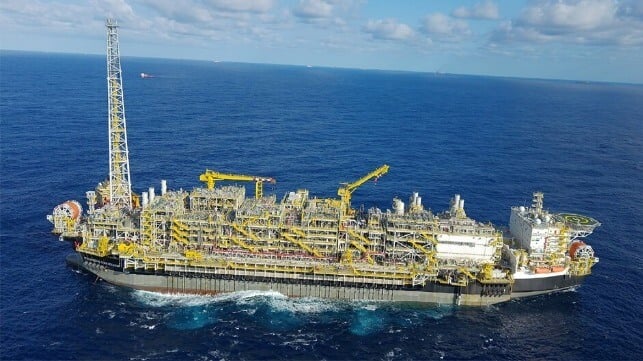Malaysia’s MISC and Armada Explore Merger to Form Floating Production Giant

Two of Malaysia’s leading offshore energy and shipping companies announced today, November 14, in a stock exchange that they are commencing merger talks. MISC Berhad and Bumi Armada Berhad signed a non-binding memorandum of understanding to explore a prospective merger.
The companies stated that the talks are at an “early stage of evaluation” warning there is no certainty that ongoing discussions will result in an agreement. The MOU is effective for nine months and until either the execution of a definitive agreement or an agreed termination.
The discussions focus on combining MISC’s Offshore Business with Armada and they anticipate the resulting company would remain a publicly-traded entity on the Malaysian stock exchange.
Explaining the rationale behind the potential merger, the companies highlighted the merged entity would be among the leading floating production businesses globally with the scale, resources, and financial capacity to compete in the growing and capital-intensive offshore floating production segment. The filing notes that the proposed merger would establish a Malaysian-based sector-focused entity that leverages the combined talent pool, project development, and engineering capability, and know-how of both MISC’s offshore business and Bumi Armada.
MISC, which is majority-owned by the Malaysian state energy firm Petronas, notes its history started in 1968 and since then has grown to become one of the global leaders in the transportation of energy in the maritime industry. Describing its offshore business, it calls it one of the world’s largest FPSO/FSO owner and operators with 12 assets, including the first and largest semi-submersible floating production system in Asia.
At the end of October, MISC reported that the FPSO Marechal Duque de Caxias, one of the largest ultra-deepwater FPSOs in the world, had achieved its first oil. The FPSO is chartered to Brazil’s national oil and gas company, Petrobras on behalf of the Libra Consortium, which developed the Mero unitized field, and has a production capacity of 180,000 barrels of oil per day, storage capacity of 1.4 million barrels, and total gas handling capacity of 440 mmscfd.
Bumi Armada highlights that it has a range of capabilities including field development support, production facilities, installation & operations, pipe-laying, hook-up, and commissioning. Currently, it is operating seven FPSOs as well as one LNG FSCU between Asia, Africa, and Europe and has two construction vessels. The company also recently entered into the upstream sector and is working on developing and carbon capture and storage joint venture with Navigator Gas called Bluestreak CO2. The joint venture is expected to design and implement a value chain of liquid CO2 shuttle tankers capable of loading from and delivering to floating carbon and storage (injection) units, and subsequently injecting CO2 into offshore storage aquifers and/or depleted oil and gas reservoirs.
Combined the two operations would have the opportunity to expand their global role at a time when the market is rapidly evolving. The companies said they would provide updates if they agree on terms and the conditions of the proposed merger.
